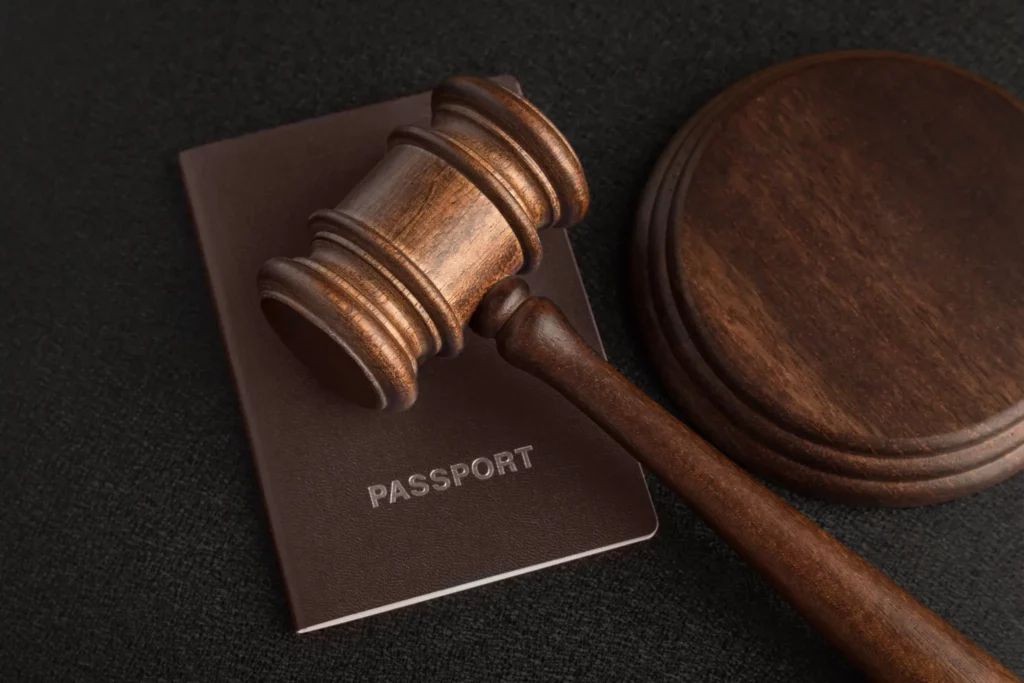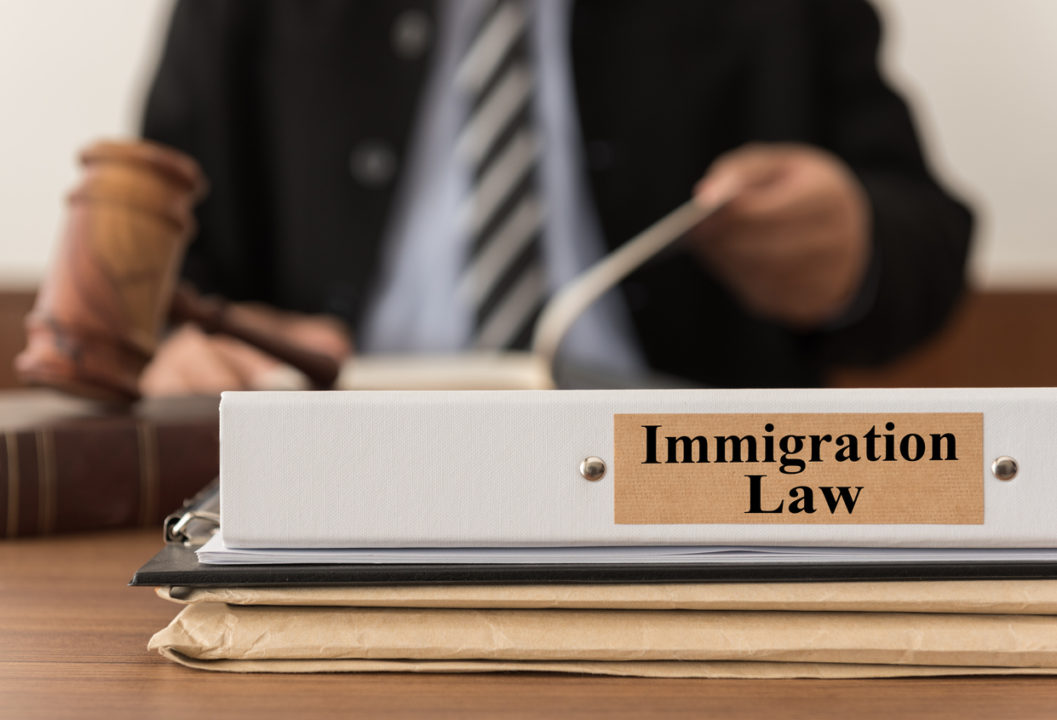Migration law serves as a pathway for individuals seeking to enter, reside, or work in a foreign country. It encompasses various rules, regulations, and processes that govern the movement of people across borders. This article aims to provide a comprehensive guide to migration law, from the foundational concepts to practical insights on navigating the immigration process.
Understanding the Basics of Migration Law
Understanding migration law is crucial for anyone looking to embark on the journey of immigration. At its core, migration law encompasses a broad array of legal frameworks that dictate how individuals can enter or stay in a country. It is essential to grasp these fundamentals to smoothly navigate the complexities involved.
Key Terms and Concepts in Migration Law
There are several key terms and concepts in migration law that individuals must familiarize themselves with:
- Visa: A visa is an official document that allows a person to enter, stay, or leave a country under specific conditions.
- Permanent Residency: This status allows an individual to live indefinitely in a country, often accompanied by certain rights and responsibilities.
- Asylum: A form of protection granted to individuals in need of refuge from persecution in their home country.
- Deportation: This is the legal process of removing a foreign national from a country for violating immigration laws.
Understanding these terms helps clarify the status and rights one might have while navigating immigration processes, making it easier to approach legal documentation and requirements. Additionally, being well-versed in these concepts can empower individuals to advocate for themselves or seek appropriate legal assistance when necessary. Knowledge of the legal landscape can also help individuals avoid common pitfalls that may arise during the immigration process, ensuring a smoother transition into their new environment.
The Role of Migration Law in Immigration
Migration law plays a significant role in shaping the immigration landscape. It establishes the guidelines by which individuals can apply for different categories of stay, whether for work, study, or family reunification. This legal framework not only protects the rights of migrants but also helps countries maintain security and regulate who can enter and reside within their borders.
Furthermore, by setting forth eligibility criteria, migration law ensures that immigration processes are fair and transparent. This is essential for fostering a sense of trust in the immigration system among both migrants and host communities. The law also adapts to changing social, economic, and political climates, reflecting the evolving needs of nations and their populations. For instance, during times of crisis, such as natural disasters or armed conflicts, migration laws may be adjusted to facilitate the entry of refugees and other vulnerable groups, highlighting the dynamic nature of these legal frameworks.
Moreover, migration law is not just a set of rules; it is influenced by international treaties and agreements that countries enter into. These agreements often aim to promote cooperation between nations in managing migration flows, enhancing the protection of migrants’ rights, and addressing issues such as human trafficking and smuggling. As such, understanding the intersection of domestic and international migration law is vital for anyone navigating the complexities of immigration, as it provides a more comprehensive view of the legal landscape and the various protections available to individuals seeking a new life in a different country.
The Immigration Process: A Step-by-Step Guide
Navigating the immigration process can be daunting. However, breaking it down into manageable steps can simplify the experience. Here, we provide a step-by-step guide to help you through the immigration process.
Preparing Your Immigration Application
The first step in the immigration process involves preparing your application. This stage requires careful attention to detail, as incomplete or inaccurate applications could lead to delays or denials. Here are some essential tips to follow:
- Research the Requirements: Different visa categories and immigration pathways have unique requirements. Researching these is crucial.
- Gather Necessary Documentation: Compile all necessary documents, such as proof of identity, financial statements, and letters of support.
- Complete the Application Form Accurately: Ensure every section is filled out correctly to avoid errors that could derail your application.
- Review Your Application: Before submission, review your application to ensure all information is accurate and complete.
Taking these steps seriously can significantly enhance your chances of a successful application. A well-prepared application sets a solid foundation for the steps that follow. Furthermore, consider seeking guidance from immigration professionals or legal advisors who can provide insights tailored to your specific situation. Their expertise can help you navigate complex regulations and avoid common pitfalls that many applicants face.
Understanding the Review and Approval Process
After submitting your application, it enters a review process, during which immigration authorities will evaluate your qualifications against existing laws and policies. Understanding this stage is essential, as it can take time and might involve additional inquiries.
During the review process:
- Background Checks: Authorities will conduct background checks to ensure applicants do not pose any security risks.
- Interviews: Some applications may require an interview to further assess the applicant’s intentions and credibility.
- Decision Notification: Once a decision has been made, you will receive a notification that indicates whether your application has been approved or denied.
This stage emphasizes the importance of patience and preparedness, as delays can be common. Remaining organized and responsive to requests for additional information can help smooth the process. Additionally, it’s beneficial to stay informed about current immigration policies and any changes that may affect your application. Engaging with community resources, such as local immigrant support organizations, can provide valuable assistance and emotional support during this often stressful time. These organizations can offer workshops, legal clinics, and networking opportunities that may enhance your understanding of the process and connect you with others who share similar experiences.

Common Immigration Challenges and How to Overcome Them
Individuals often face various challenges during the immigration process. Awareness of these potential pitfalls can help applicants prepare and address them effectively.
Dealing with Application Delays
Delays in the immigration process can be frustrating. Various factors, such as application backlogs, changes in policies, or missing documentation, can contribute to these delays. To mitigate their impact:
- Stay Informed: Regularly check the status of your application and any updates from immigration authorities.
- Maintain Communication: Reach out to immigration offices for updates or further requirements.
- Be Prepared for Delays: Financially and emotionally prepare for potential long wait times.
By adopting these strategies, applicants can better navigate delays and maintain a proactive approach throughout the process. Additionally, joining online forums or local community groups can provide support and insights from others who are experiencing similar challenges. Sharing experiences can not only offer practical advice but also foster a sense of solidarity, reminding applicants that they are not alone in their journey. Moreover, staying updated on any changes in immigration laws or policies can help applicants anticipate potential delays and adjust their strategies accordingly. Learn more about Private wealth law: managing your assets with expert advice.
Responding to Application Denials
Receiving an application denial can be discouraging. However, it is crucial to understand the denial’s basis and explore possible avenues for appeal or reapplication. Here’s how to approach a denial:
- Understand the Reasons for Denial: Carefully read the denial notice to identify specific reasons.
- Seek Legal Advice: Consider consulting with an immigration lawyer to understand your options.
- Gather New Evidence: If applicable, collect additional evidence or documentation that could strengthen your case for an appeal or future applications.
- Submit an Appeal or Reapplication: Determine the best route to take based on advice from legal counsel and the circumstances surrounding the denial.
Responding to a denial with diligence and accuracy is vital for increasing the likelihood of a successful outcome in future attempts. Furthermore, it can be beneficial to reflect on the application process itself, identifying areas where improvements can be made. This could involve reassessing the quality of submitted documents or ensuring that all required forms were completed accurately. Engaging with support networks, such as immigration advocacy organizations, can also provide valuable resources and guidance. These organizations often offer workshops and seminars that help applicants understand the nuances of the immigration process, empowering them to present stronger cases in their subsequent applications.
The Role of Immigration Lawyers in Migration Law
Immigration law is complex; thus, seeking legal assistance can be beneficial for many applicants. Immigration lawyers are trained to navigate these complexities and can provide valuable support.
When to Consult an Immigration Lawyer
While not every applicant requires legal assistance, there are specific instances where consulting an immigration lawyer is advisable:
- Complex Cases: If your situation involves multiple issues, such as past immigration violations or criminal records, professional guidance is recommended.
- Application Denials: If your application has been denied, an immigration lawyer can clarify your options and assist with appeals.
- Change of Status: If you need to adjust your immigration status, a lawyer can ensure you meet necessary requirements.
In these cases, having an immigration lawyer can significantly enhance the chances of navigating the complexities successfully.
How Immigration Lawyers Can Help
Immigration lawyers offer various services designed to facilitate the immigration process. They provide expert advice on:
- Application Preparation: Ensuring all required forms are properly completed and submitted.
- Legal Representation: Representing clients in hearings or appeals related to immigration matters.
- Guidance Through Changing Laws: Keeping clients informed on recent changes in immigration law or policy that may impact their cases.
By leveraging the expertise of an immigration lawyer, applicants can navigate challenges more efficiently, increasing their chances of success.
Changes in Migration Law: Staying Updated
Migration law is not static; it continuously evolves due to political, social, and economic factors. Staying informed about these changes is crucial for anyone involved in the immigration process.
Recent Changes in Migration Law
Recent years have witnessed significant alterations in migration law, impacting both applicants and countries. Key changes include:
- Increased Application Fees: Many countries have raised fees for processing immigration applications, which can impact applicants financially.
- Policy Revisions on Asylum Seekers: New regulations have been introduced affecting how asylum claims are processed and prioritized.
- Implementation of New Visa Categories: Some countries have added or adjusted visa categories to attract specific talent, such as tech workers.
Understanding these changes can help applicants better navigate the immigration landscape and align their applications with current requirements.

Predicted Future Changes in Migration Law
Experts in migration law anticipate further changes in the coming years. Potential future changes may address:
- Streamlining Processing Times: Efforts to reduce backlogs and make processing more efficient.
- Focus on Family Reunification: Possible reforms aimed at easing barriers for family-based immigration.
- Adapting to Labour Market Needs: Modifications in visa regulations to respond to evolving labor demands in various sectors.
Staying proactive and informed about these possible shifts can prepare current and future applicants for what lies ahead in the realm of migration law.
In conclusion, understanding migration law is pivotal for anyone navigating immigration processes. By familiarizing oneself with the basics, knowing potential challenges, and seeking assistance when needed, individuals can effectively maneuver through the complex landscape of immigration law, establishing a path toward a successful settlement in their desired country.

